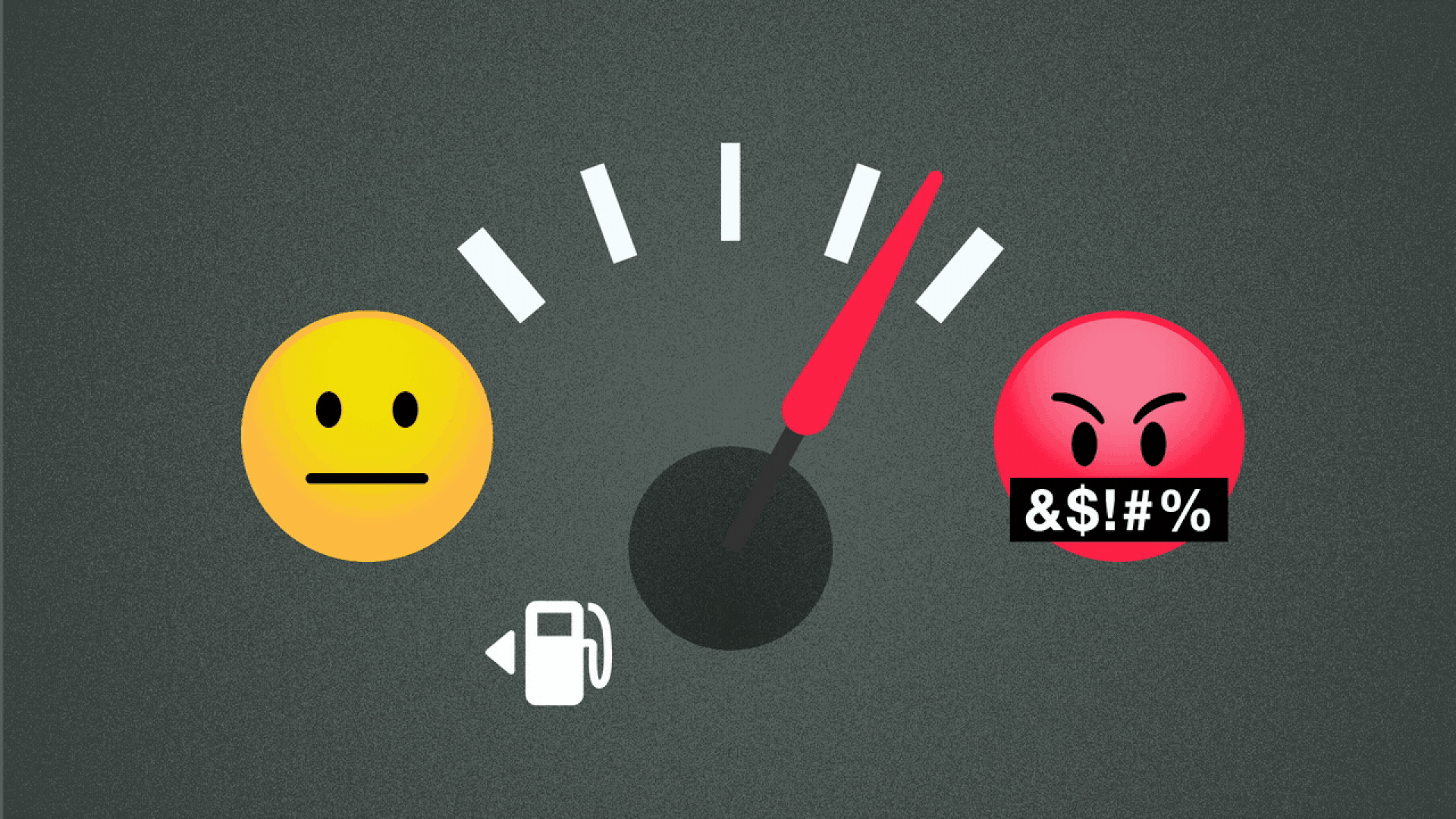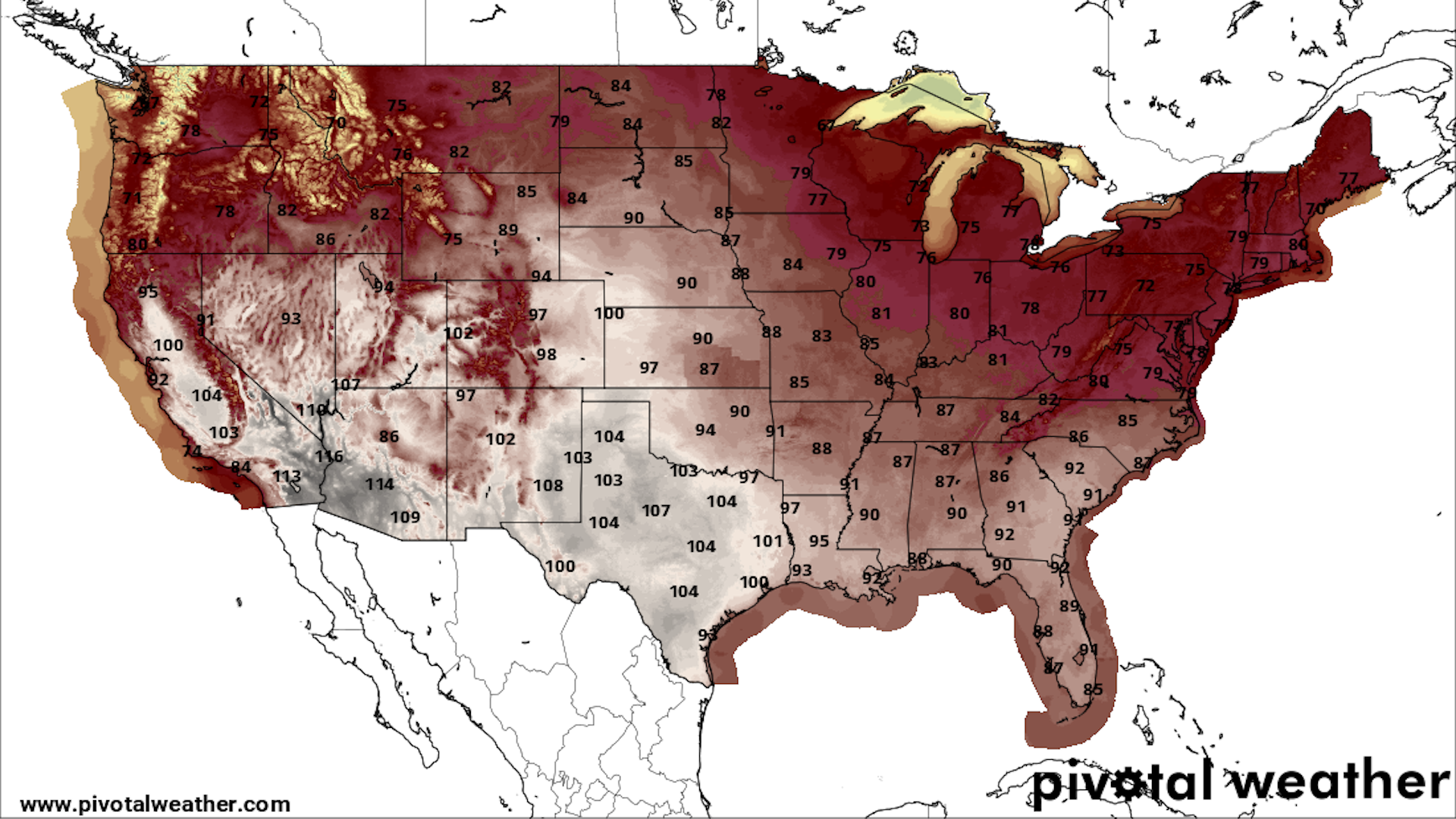| | | | | | | Presented By ICE | | | | Axios Generate | | By Ben Geman and Andrew Freedman · Jun 10, 2022 | | 🍺 Yes, Friday. Today's newsletter, edited by Mickey Meece, has a Smart Brevity count of 1,184 words, 4.5 minutes. 📬 Did a friend send you this newsletter? Welcome, please sign up. 🎸 Exactly 40 years ago The Clash released a catchy single that's today's intro tune... | | | | | | 1 big thing: $5 gas and its discontents |  | | | Illustration: Brendan Lynch/Axios | | | | The U.S. national average gasoline price is now $5-per-gallon (or just shy) for the first time and much higher in many states, Ben writes. Driving the news: AAA's daily tracker has it at $4.99 today, while the firm GasBuddy says the $5 mark arrived yesterday. Why it matters: $5 is a symbolic threshold, but high prices have real economic and political consequences. Here are a few big points... 1. It's a perfect storm in the markets. Very high oil prices thanks in part to Russia's invasion of Ukraine, global fuel demand returning from the pandemic, and constrained refinery capacity are all pushing in the same direction. "It's been one kink after another this year, and worst of all, demand doesn't seem to be responding to the surge in gas prices," GasBuddy analyst Patrick De Haan said in a blog post. 2. It's a perfect storm in U.S. politics too. Presidents have little sway over gasoline prices. But pump pain could nonetheless worsen expected Democratic losses in the midterm elections, especially as inflation overall is a top-of-mind thing for voters. - A bunch of polls during the price run-up signal jeopardy, even as Americans also lay blame at Vladimir Putin's feet.
- An ABC News/Ipsos poll released June 5 found only 27% approval for President Biden's handling of the topic. The GOP is aggressively emphasizing the costs.
3. But it's not a record, exactly. Prices have been previously higher if you adjust for inflation. We've got more about that in the next item. 4. The economic pain is real. High fuel prices hit consumers directly and also drive inflation more broadly by hiking costs for fuel-intensive businesses. - It also leaves families with less to spend on other needs. But that said, motor fuel has been a higher share of household income in the past due to less efficient cars and other forces.
- The burden is felt unevenly. Axios' Emily Peck points out that in 2019, the top 20% of earners spent 2% of their income on gas, while it's 8% for the bottom 20%.
5. Electric vehicle sales may benefit. Auto industry marketplaces and researchers, including Edmunds, have reported increased consumer interest in EVs during the price run-up. - A note of caution here because direct links between EV interest and actual purchase decisions are hard to track.
- But EV sales are already growing quickly, and we'll see how much analysts ultimately attribute to pump prices.
Go deeper: Our Axios Markets friends have a terrific deep dive into gas prices this morning. Check it out. |     | | | | | | The road to $5 (and why it's not a record) |  Note: Historical data is annual, monthly and since 1990, weekly; Data: Energy Information Administration; Chart: Axios Visuals Gasoline prices are below the inflation-adjusted high. That arrived in June 2008, when average U.S. regular gas prices hit roughly $5.44 in today's dollars. |     | | | | | | 2. Drought study reinforces current risks |  Data: NOAA; Chart: Jacque Schrag/Axios A new study out yesterday sheds new light on the drought history of the Colorado River Basin, and only adds to current concerns about the Southwest megadrought, Andrew writes. What they found: Based on tree-ring records of historical streamflow in the Upper Colorado River Basin, the study uncovered a drought in the second century that was more severe than the ongoing 22-year region-wide drought event. - The newly discovered 24-year drought between 129-150 CE likely ranks as the most severe drought in the past 2,000 years for this region, the study finds.
Why it matters: The newly found drought stands as an example of how much worse things can get, driven by natural climate fluctuations. If such a drought were to occur today, it would undoubtedly be far worse, due to the added effects of human-driven climate change, scientists told Axios. - The results would also be catastrophic, given the demand for water and energy in the booming Southwest.
The big picture: Right now, the entire West is experiencing drought conditions — with 90% of New Mexico in the two worst categories, 60% of California and 55% of Nevada. - California just had its driest first five months of a year on record.
- Benjamin Cook, a NASA drought researcher, told Axios the widespread nature of the current drought is one of the strongest pieces of evidence pointing to the role human-caused climate change is playing in it.
What they're saying: "Climate change is making it warmer pretty much everywhere, which increases evaporation and enhances surface drying over a broad geographic region," Cook told Axios via email. Read the whole story. |     | | | | | | A message from ICE | | Secure streaming data access in all market conditions | | |  | | | | Against a backdrop volatility, an explosion of streaming market data message rates means many firms are challenged to find new ways to efficiently process information. What you need to know: Conflation can play a critical role. Learn why with insights from ICE. | | | | | | 3. Blistering heat threatens 40 million and growing |  | | | Forecast highs from the National Weather Service for June 11, 2022. (Pivotalweather.com) | | | | An extreme heat event is gripping the Southwest, including major metro areas such as Houston, Phoenix, Las Vegas and Sacramento, Andrew writes. Why it matters: Daytime high and overnight temperature records began to fall yesterday, and many will be tied or broken today through Sunday. The National Weather Service is warning of a "high" potential for heat-related illnesses. By the numbers: 113°F-116°F: Forecast high temperature in Phoenix tomorrow. - 85°F: Overnight low in Phoenix Sunday morning.
- 109°F: High today in Las Vegas.
- 122°F: High today in Death Valley, Calif., which would be a daily record.
- 10°F-20°F: Temperature departures from average across the Southwest through Sunday.
Threat level: When overnight temperatures remain elevated it increases the heat wave-related public health risk, particularly for those without cooling access in cities. What's next: The heat dome, intensified by climate change, will shift east next week, sprawling from the Midwest to the South. |     | | | | | | 4. I'm _____, your new heat wave |  | | | Illustration: Natalie Peeples/Axios | | | | Speaking of heat waves, there's a growing effort to name and categorize these events the way we do hurricanes — to call attention to their significance, alert people to danger, and prod public officials into action, Axios' Jennifer A. Kingson reports. Why it matters: Heat waves are the deadliest type of U.S. weather emergency — and they're growing in frequency and intensity due to global warming. - Excessive heat — which hits low-income communities the hardest — doesn't lend itself to dramatic TV coverage, so people sometimes underestimate the risk.
- Proponents of a more formal public warning system say it could save lives and trigger measures like opening community cooling stations and asking people to stay indoors.
Driving the news: This month Seville, Spain, is poised to become the first city to start naming severe heat waves. Five others — Los Angeles; Miami; Milwaukee; Kansas City, Missouri; and Athens — have started piloting a similar initiative. They'll use a three-category system that organizers want to standardize. Each city's system will be tailored to its particular climate. Read the whole story. |     | | | | | | 5. Key Biden aide prods Big Tech on climate misinfo |  | | | Screenshot of Axios virtual event | | | | President Biden's top domestic climate adviser said tech companies should do more to prevent the spread of inaccurate information about climate change and clean energy, Ben writes. Driving the news: "The tech companies have to stop allowing specific individuals over and over again to spread disinformation," Gina McCarthy told Axios' Alexi McCammond at a virtual event that aired Thursday. "We need the tech companies to really jump in," McCarthy said. The big picture: McCarthy said that overall, the problem of misinformation has shifted from disputing the reality of climate change to inaccurate claims about the feasibility and benefits of moving away from fossil fuels. - "Now it has moved from denial, but the dark money is still there. The fossil fuel companies are still basically trying their best to make sure that people don't understand the challenge of climate," she said.
Read the whole story and watch the full event. |     | | | | | | A message from ICE | | 4 motivations that drive ESG data use | | |  | | | | Data is a key to the ESG revolution, and a more tailored approach can help inform better outcomes. How it's done: It can be helpful to examine the motivation of a data user through four categories: right thing, risk, revenue and regulation. Learn more. | | | | 🙏Thanks so much for reading, and we hope you have a great weekend. |  | It's called Smart Brevity®. Over 200 orgs use it — in a tool called Axios HQ — to drive productivity with clearer workplace communications. | | | | | | Axios thanks our partners for supporting our newsletters. If you're interested in advertising, learn more here.
Sponsorship has no influence on editorial content. Axios, 3100 Clarendon Blvd, Suite 1300, Arlington VA 22201 | | | You received this email because you signed up for newsletters from Axios.
Change your preferences or unsubscribe here. | | | Was this email forwarded to you?
Sign up now to get Axios in your inbox. | | | | Follow Axios on social media:    | | | | | |











No comments:
Post a Comment